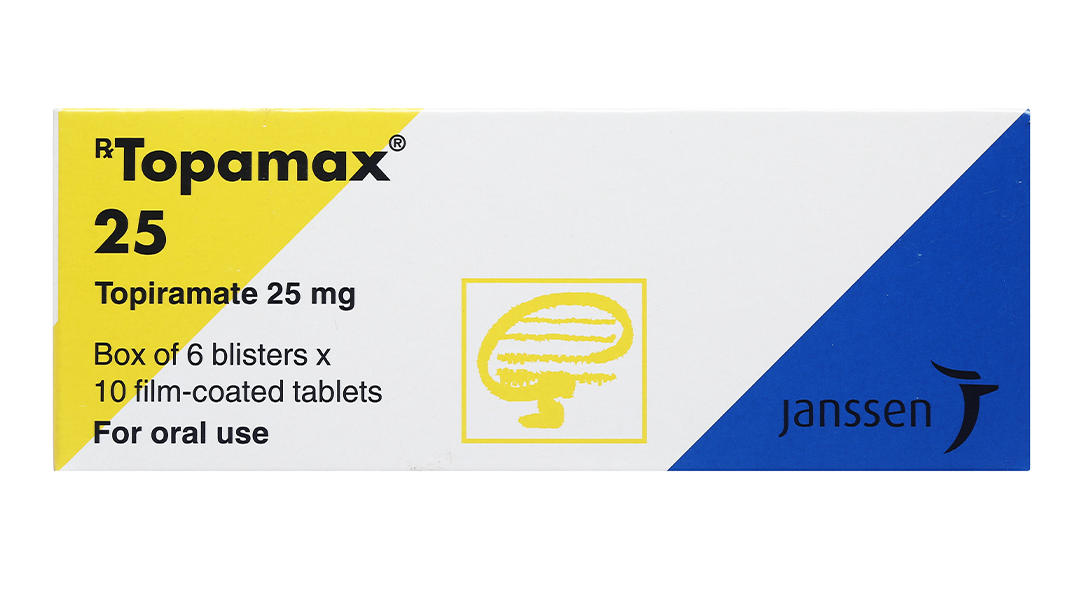Topamax, or topiramate, is a medication primarily used to treat epilepsy and prevent migraines. However, it is also known for its potential side effects, including weight loss. Many people have turned to Topamax as a weight-loss solution, believing that it could help them shed unwanted pounds. However, some individuals find themselves perplexed when they do not experience the expected weight loss. In this article, we will explore the reasons why you might not be losing weight on Topamax, taking into account various biological, lifestyle, and psychological factors that can influence weight management.

Understanding Topamax and Weight Loss
Topamax works by inhibiting certain excitatory neurotransmitters in the brain, which can have a multitude of effects on metabolism and appetite regulation. In some individuals, Topamax may decrease appetite and increase feelings of satiety. While this may lead to weight loss for some, it is essential to recognize that medication affects every individual differently. Some may experience weight loss, while others may not see any significant changes or could even gain weight.
Factors that Influencing Weight Management on Topamax
- Metabolic Variability
Every person has a unique metabolic rate influenced by factors such as genetics, age, gender, and body composition. If your metabolism functions at a slower rate, you might burn fewer calories, thus finding it challenging to lose weight despite the appetite-suppressing effects of Topamax. An individual’s metabolic efficiency and the energy they expend during daily activities can greatly influence weight changes.
- Dietary Choices
Regardless of medication, maintaining a balanced and healthy diet is paramount for weight loss. If you are consuming high-calorie, low-nutrient foods, you may not be achieving the caloric deficit necessary for weight loss. Topamax may reduce appetite, but it does not replace the need for mindful eating. Assessing your food intake and making healthier choices is vital to your weight management efforts.
- Physical Activity Level
Incorporating regular physical activity into your routine is another crucial component of weight loss. While Topamax might help in managing appetite, it is not a substitute for exercise. If you lead a sedentary lifestyle or aren’t engaging in sufficient physical activity, this could explain a plateau or lack of weight loss. Consider evaluating your exercise habits and establishing a consistent routine that aligns with your weight-loss goals.
- Individual Responses to Medication
Each individual metabolizes medication differently. Genetic variations can impact how effectively Topamax works for you. Some may not respond in the same way as others due to differences in drug absorption, distribution, metabolism, and elimination. If your body does not respond effectively to the medication, it may not result in the expected weight loss.
- Psychological Factors
Psychological factors can play a significant role in weight management. Stress, anxiety, depression, and other emotional issues can lead to unhealthy eating patterns or binge eating, counteracting the appetite-suppressing effects of Topamax. If you are under psychological stress, it may be worth exploring therapy or counseling to address underlying issues that can impact your weight loss journey.
- Hormonal Influences
Hormones regulate numerous bodily functions, including metabolism and appetite. The hormonal balance in your body can significantly influence weight loss outcomes. For women, fluctuations in hormones due to menstrual cycles, pregnancy, or menopause can affect weight. Men also experience hormonal changes that can impact their body composition and metabolism. If your hormone levels are imbalanced, it may hinder your progress despite taking Topamax.
- Dosage and Duration of Use
The effectiveness of Topamax for weight loss can also depend on the dosage and how long you have been using it. If you are on a low dose, it may not have enough of an impact to cause notable weight loss. Conversely, if you have only recently started taking the medication, it may take time for your body to adjust and for any potential weight loss benefits to be realized. Speak to your healthcare provider to assess if dosage adjustments are warranted.
- Potential Weight Gain as a Side Effect
While Topamax is often associated with weight loss, some individuals may experience weight gain instead. This could be due to several factors, including changes in thirst leading to increased fluid intake or changes in metabolism. Additionally, if you have stopped other weight-loss medications or made changes to your lifestyle that are counterproductive, you may experience weight gain.
- Other Medications and Health Conditions
Polypharmacy, or the use of multiple medications, can complicate weight loss efforts. Some medications may interact with Topamax, influencing its effectiveness and your body’s ability to lose weight. Moreover, underlying health conditions (such as hypothyroidism or metabolic syndrome) can also affect weight management. It’s crucial to evaluate your entire health profile to determine if other medications or conditions are hindering your weight loss.
Strategies for Weight Loss on Topamax
If you find that you are not losing weight on Topamax, consider the following strategies:
- Consult Your Healthcare Provider: Before making any changes, speak with your healthcare professional about your experiences with Topamax. They can provide insights and may adjust your dosage or suggest alternatives.
- Track Your Diet: Keeping a food journal can help you become more aware of your eating patterns and caloric intake. This tool can enable you to make informed adjustments to your diet.
- Increase Physical Activity: Engage in regular physical exercise. Aim for a combination of cardiovascular workouts and strength training to boost metabolism and promote fat loss.
- Set Realistic Goals: Establish achievable weight-loss goals, remembering that gradual progress is often more sustainable than rapid weight loss.
- Manage Stress: Implement stress-reducing techniques such as meditation, yoga, or mindfulness practices to mitigate emotional eating and promote mental well-being.
- Assess Other Medications: Discuss with your doctor whether any other medications you are taking could be impacting your weight and explore potential alternatives.
Conclusion
While Topamax is known for its appetite-suppressing capabilities and has helped many in their weight loss journey, it is crucial to recognize that medication alone cannot guarantee weight loss. Numerous factors can influence your ability to lose weight while on Topamax, including metabolic rate, dietary choices, physical activity, hormonal balance, and psychological aspects. It is essential to approach weight loss with a multifaceted strategy that incorporates lifestyle changes and medical guidance.
If you find yourself struggling to lose weight on Topamax, don’t hesitate to reach out to a healthcare professional for assistance. A tailored approach can help you navigate this journey more effectively and achieve your weight-loss goals in a healthy, sustainable manner.


